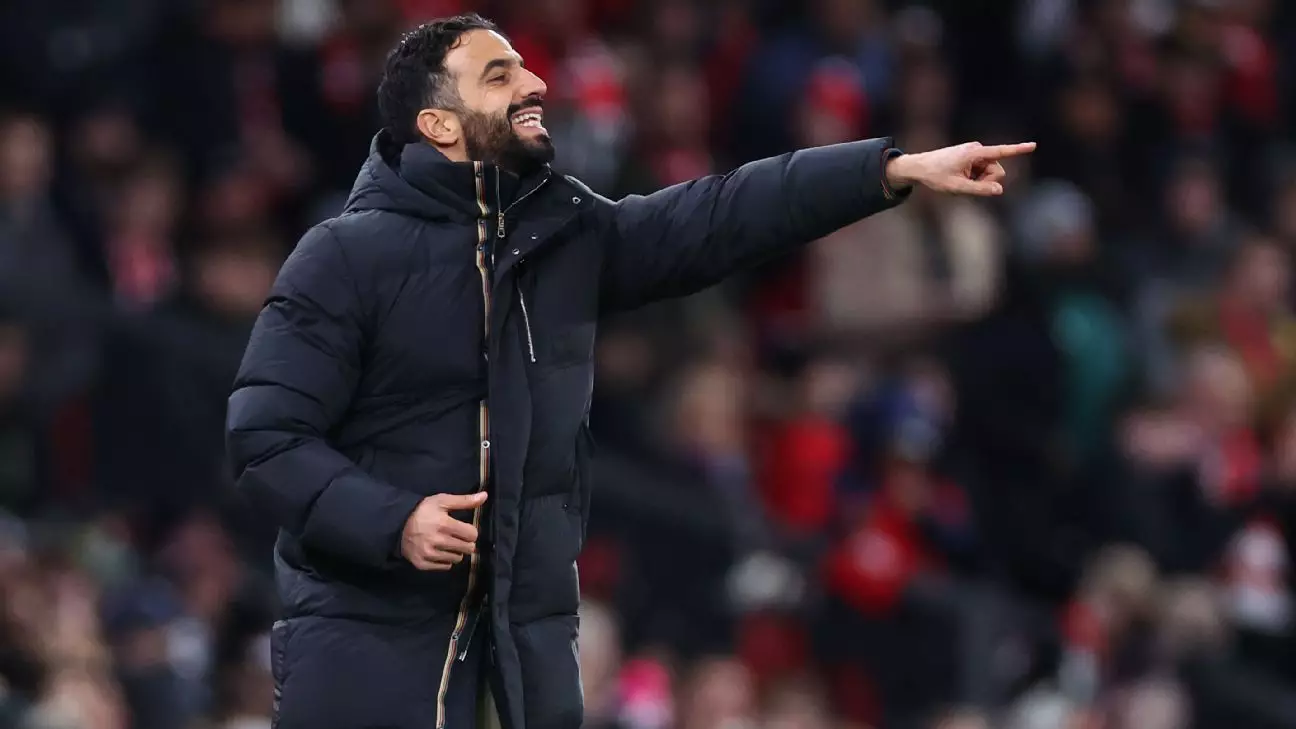Ruben Amorim: Navigating New Challenges at Manchester United
When you take on a monumental task like managing Manchester United, you’re bound to face a whirlwind of emotions and challenges. Ruben Amorim, stepping into this prestigious role, has embarked on a journey filled with both promise and uncertainty. His recent 3-2 win against Bodo/Glimt in the Europa League showcased his potential but also highlighted the hurdles he must overcome. As a Portuguese tactician known for his strategic prowess, Amorim is navigating the complexities of instilling his philosophy into a team in transition.
In the realm of football management, understanding your players’ strengths while fostering teamwork is crucial. Amorim openly shares his struggles with anxiety and the pressure that comes with this high-stakes environment. Coming from a successful stint in Portuguese football, he’s adjusting to the more intense scrutiny of the English league. His candidness about feeling anxious reflects the genuine challenges he faces as he works to adapt both himself and his squad to new expectations.
Key Takeaways
- Ruben Amorim is integrating his tactical philosophy at Manchester United amidst early challenges.
- The manager’s rotation strategy aims to fine-tune the squad and inject fresh energy.
- Balancing tactical demands with player welfare is crucial for long-term success.
The Tactical Shift
Since taking the helm at Manchester United, Amorim’s strategic approach has evolved noticeably. In a decisive move against Bodo/Glimt, he altered the starting lineup significantly compared to his debut match against Ipswich. This willingness to rotate players like Lisandro Martínez, Tyrell Malacia, Antony, Manuel Ugarte, Mason Mount, and Rasmus Hojlund indicates his commitment to refining team dynamics. These changes are not merely experimental; they reflect Amorim’s vision of crafting a cohesive unit capable of executing complex strategies on the field.

Despite these efforts leading to victory, they bring up questions regarding squad depth and resilience against fatigue. After the match, Amorim noted players like Hojlund and Antony experienced fatigue, underscoring modern football’s physical demands. His reflection that “we tried to press all the time… the last 10 minutes were tough” speaks volumes about the energy required for his tactics. This acknowledgment highlights the need for well-conditioned players who can endure such rigorous demands throughout a demanding season.
Preparing for Upcoming Challenges
With Everton next on their schedule, Amorim faces the challenge of balancing tactical innovation with player health and fitness. The anticipated lineup changes suggest a forward-thinking mindset but also highlight the reality of managing a fatigued squad. His statement, “We will have to change players,” reveals an understanding of limits and a strategic approach to maintaining performance levels without compromising player welfare. This necessity for adaptability will be key as he aims to build a robust squad that can withstand both physical and mental pressures.
Amorim’s transparency about his emotional state provides insight into his journey at Manchester United so far. Balancing excitement with apprehension is part of stepping into such an esteemed role. As he focuses on improvement and tactical refinement, it’s critical that these efforts translate into consistent results on the pitch. His tenure will be defined by this balance, shaping not only his legacy but also Manchester United’s future in elite football circles.
Final Thoughts
Navigating new challenges at Manchester United is no small feat for Ruben Amorim. His journey involves more than just implementing tactical strategies; it’s about building a resilient team capable of enduring high-pressure situations while achieving success. As he continues to refine his approach and adapt to this demanding environment, his ability to foster cohesion among players will be essential. With each game presenting new lessons and opportunities for growth, Amorim stands at the helm ready to lead Manchester United toward reclaiming its former glory.
Ruben Amorim
Manchester United
Football Management
“`
[CONTINUE FROM HERE]


Leave a Reply